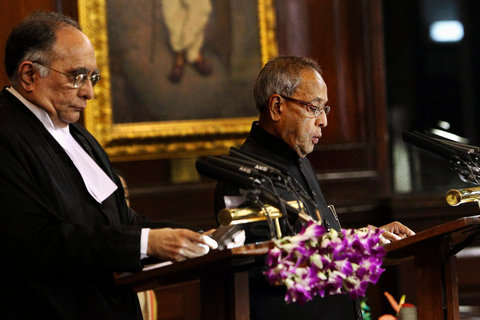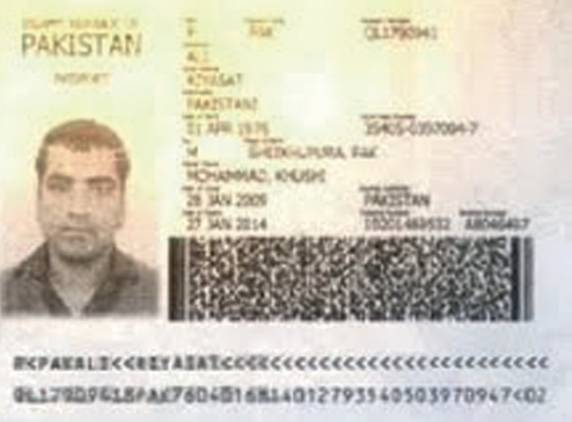
[India Report] India To Make Rape Laws Gender Neutral
India is to make a historical move in the field of law by making rape laws ‘gender neutral’. The UPA (The United Progressive Alliance) government is considering making rape a gender-neutral offence, with the Union Cabinet on Thursday scheduled to discuss a number proposals designed to enhance punishment for sexual assault and has also decided to widen the coverage under sexual assault. The change in the rape law is being drafted by the ministry of Women and Child Development (WCD) as part of the criminal law (amendment) bill, 2011.

The proposal before the Cabinet seeks to change the definition of “rape” as a crime involving sexual assault of women and defined by forcible penetration. The move now is to expand the definition to include male victims of sexual assault as well by changing the relevant provisions of the IPC (Indian Penal Code), Evidence Act and CrPc (Criminal Procedure Code).
If the proposal goes through, “rape” as a category of crime will cease to exist in the statute books, as the proposal is to replace it with “sexual assault”—a gender-neutral distinction as reported by The Times Of India. The extended definition of rape includes, sexual violence of a man against another, sexual violence of a woman against another, and the most controversial one is sexual violence by a woman against a man.
Other proposals in the bill were sought to make ‘stalking’ and ‘acid attacks’ on women as specific crimes. The ministry has recommended that a new Section 326A (hurt by acid attack) and Section 326B (attempt to throw or administer acid) that deals with offenders who burn or disables a person or causes grievous hurt be made punishable with imprisonment of 10 years, extendable to life term and a fine up to Rs 10 lakh. Similarly, attempt to throw acid can attract imprisonment of five to seven years.
These amendments are likely to be widely welcomed given the incidence of women being targeted by acid attacks by persons whose advances have been rejected. Courts have often expressed anguish over the brutal and vengeful nature of the crime and called for exemplary punishment for offenders. The bill also proposes to introduce a new Section 509B in the Penal Code(Indian Penal Code, IPC) to make stalking punishable with maximum imprisonment of seven years. Stalking will include following a woman repeatedly, contacting her through phone, mail or any other form of communication or loitering or watching the place where she works or lives.
But the proposal that the cabinet will consider to replace the term “rape” with “sexual assault” to make it gender neutral has supposedly became a topic of debate. For some of the supporters of this neutralization of law irrespective of genders it is a landmark move by the center which would have been considered for years. And according to them, better late than never. They are satisfied that the sexual assault on men even by a woman can now be preceded under the same statute. They believe it to be truly historic from all angles as this is the first time it has placed men in an equal footing with women. Supreme Court advocate Aparna Bhatt welcomed the move, pointing out that sexual abuse of boys was rampant.
But this very move of the central government is facing a huge criticism by the general as well as the learned people of India. Those opposed to the move, like Flavia Agnes, said “I oppose the proposal to make rape laws gender neutral. There is physicality in the definition of rape, there is use of power and the victim has a stigma attached to her. If made gender-neutral, rape laws will not have the deterrence value and it will make it more complicated for judges in court,” Agnes said. They also quoted the reactions of Delhi advocate Vrinda Grover who said, “Why should rape laws be gender-neutral? That would be making a mockery of what is actually happening in the country.

There are no instances of women raping men. I don’t think men are facing serious sexual violence as women. Consider the brutality and intensity of sexual violence against women. Hope the home minister does not put out a bill that delays or obfuscates discussions on the issue.”
People against this move believes that there are hardly any instances of a man being sexually harassed and though there are incidents where boys are harassed sexually in their tender ages they are totally in a different footing from a girl rapped. They are in the opinion that sexual assault of a woman should be treated under the head of rape and in the cases where children or boys are sexually exploited that should be written and treated differently.
Among other proposals in the bill, one is aimed at curbing the growing incidence of sexual violence in jails, hostels, juvenile centers and women’s shelters. The minimum punishment for those found guilty of custodial rape is sought to be raised from 7 years to 10 years. What’s more, in case a husband, legally separated from his wife, tries to indulge in forced sex, he could face a jail term ranging from two to seven years.
Laying down strong safeguards for victims, the police and courts have been barred from making complainants of below 18 years to face the accused. Similarly, changes in the evidence law will include prevention of questions on the past conduct of victims. If recommendations are accepted it will mean a victim cannot be allowed to be cross-examined in case of sexual offence nor will she be confronted with the accused.
Sudhanya Ghosh Intern Reporter news@theasian.asia



















One thought on “[India Report] India To Make Rape Laws Gender Neutral”